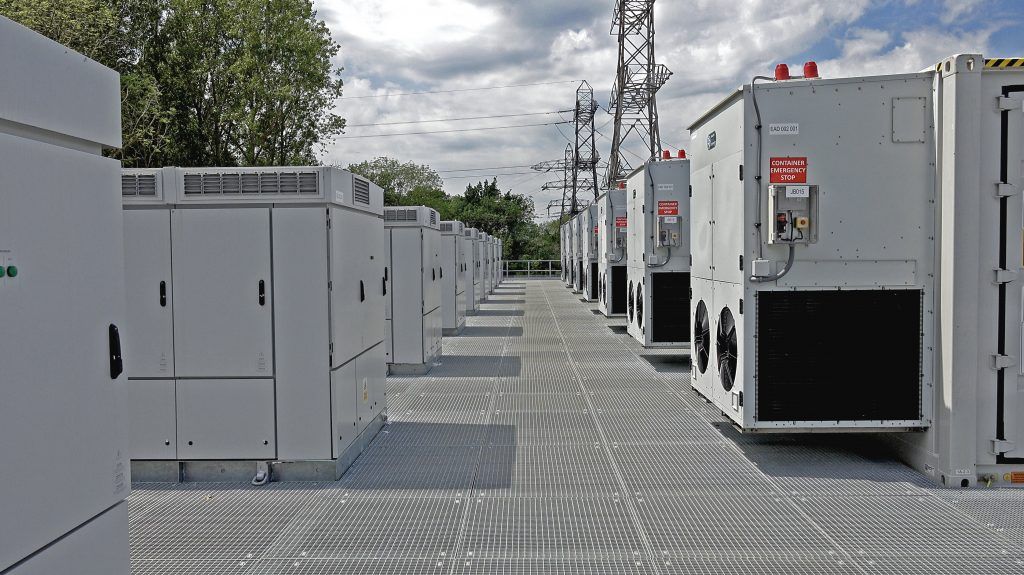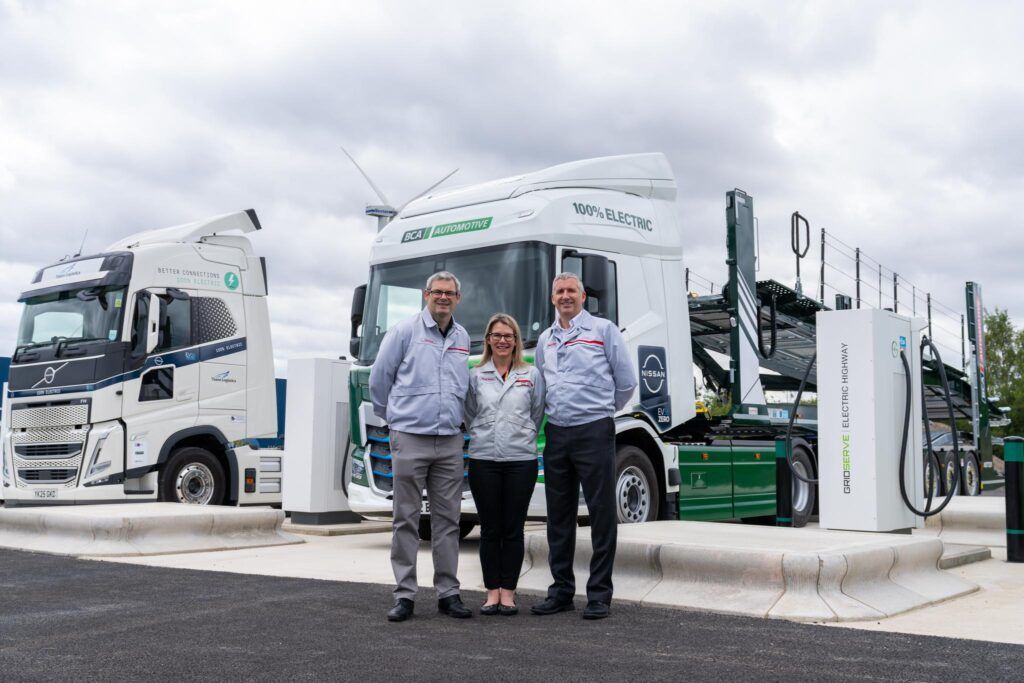Pivot Power, part of EDF Renewables, Wärtsilä, the global technology company, and Habitat Energy, the battery storage optimisation specialists, today (23 June) activated the UK’s first grid-scale battery storage system directly connected to the transmission-network as part of the £41 million Energy Superhub Oxford (ESO) project.
The government-backed project, led by Pivot Power, integrates energy storage, electric vehicle (EV) charging, low carbon heating and smart energy management technologies to decarbonise Oxford by 2040 and creates a blueprint for other towns and cities to achieve net zero. The system is the first to go live as part of Pivot Power’s plans to deploy up to 40 similar sites throughout the UK.
The 50MW lithium-ion battery energy storage system will be directly connected to National Grid’s high-voltage transmission system at the Cowley substation on the outskirts of Oxford. It is the first part of what will be the world’s largest hybrid battery, combining lithium-ion and vanadium redox flow systems, which is due to be fully operational later this year. The energy storage system will provide essential flexibility to cost-effectively integrate more renewables, increase system resilience and future-proof the UK’s electricity network.
Pivot Power is developing the battery energy storage system together with an 8km private wire network, which will share the connection to the high-voltage transmission network and deliver large volumes of power to public and commercial EV charging locations across the city. The first of these will be the UK’s largest public charging hub at Redbridge Park & Ride, which will feature 38 fast to ultra-rapid chargers when it opens later this year, to kick start Oxford’s EV revolution.
Wärtsilä has provided cutting edge battery energy storage technology, underpinned by its GEMS Digital Energy Platform, for optimised hybrid system control. GEMS dynamically manages energy systems through a broad range of applications, providing critical feedback to stakeholders across asset owner, operation and trading value chains. The system’s design enables the delivery of different services from frequency regulation to enhanced grid resilience. In addition, it has the ability to provide back-up power to EV charging infrastructure connected to Pivot Power’s private wire network.
Habitat Energy will optimise the battery trading and revenue generation using their AI-enabled PowerIQ platform, overseen by a team based in their Oxford office. This approach combines the best opportunities available in the day ahead market, intraday and balancing mechanism and provides ancillary services such as Dynamic Containment. They will manage and optimise the EV charging, to maximise value to the end consumer and benefit to the grid.
Matt Allen, CEO of Pivot Power, said: “This is the first grid-scale battery to directly connect to the transmission network in the UK, and represents a key milestone for the completion of Energy Superhub Oxford and our mission to accelerate the UK towards net zero. We are planning up to 40 similar sites throughout the country, totalling up to 2GW of battery storage – forming a key pillar of EDF’s plan to develop an additional 10GW of battery storage globally by 2035.”
Pekka Tolonen, Energy Business Director, Europe, at Wärtsilä, said: “Wärtsilä’s ambition is to support countries around the world to transition to 100% renewables. Grid flexibility and energy storage are essential to ensure the UK can hit its ambitious net zero targets in a cost-effective, sustainable and resilient way. Our GEMS platform enables Energy Superhub Oxford’s energy storage system to operate in a truly dynamic way, responding to the demands of the market and improving power reliability. We believe this unique collaboration is a blueprint for the use of energy storage throughout the UK and Europe.”
Andrew Luers, Co-Founder and CEO of Habitat Energy, said: “It has been our pleasure working with Pivot Power and the other partners in this project, and we are delighted to see it now become a reality. Habitat Energy’s PowerIQ optimisation software and expert trading team are delivering exceptional revenue generation from battery storage assets across the UK, and soon also in Australia and other countries. We are excited to further demonstrate our capability on this, our first transmission-connected system, and shortly also on the long-duration redox flow battery.”
Councillor Tom Hayes, Deputy Leader and Cabinet Member for Green Transport and Zero Carbon Oxford, said: “Oxford is at the heart of British efforts to innovate green technologies and home to Energy Superhub Oxford. This £41m world-first project led by Pivot Power is taking a big step forward and laying the foundations for progress to net zero emissions by 2040 or earlier. By integrating EV charging, battery storage, low carbon heating, and smart energy management technologies, Energy Superhub Oxford can save 10,000 tonnes of CO2 every year once opened this year. That’s equivalent to taking over 2,000 polluting cards off the road, increasing to 25,000 tonnes by 2032. We will only build back greener and protect our planet if we come together to take action, and Energy Superhub Oxford is a fantastic example of collective climate action.”
The second element of the project, the vanadium redox flow battery, supplied by UK energy storage experts Invinity Energy Systems, will come online later this year. Once operational, the University of Oxford will evaluate the performance of the hybrid battery against a digital twin. This will provide a validated performance model of large-scale storage systems which can be used to more accurately predict project returns and accelerate energy storage investment globally.
Image courtesy of Pivot Power/Greenhouse PR.















